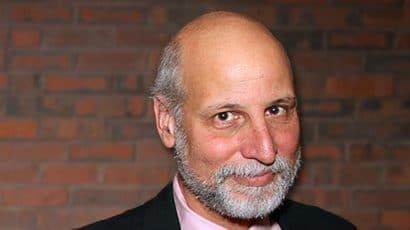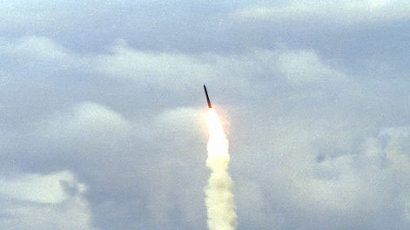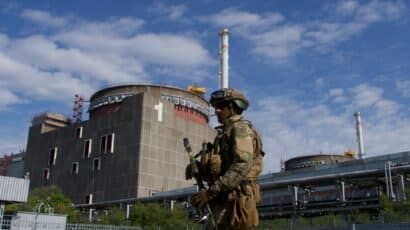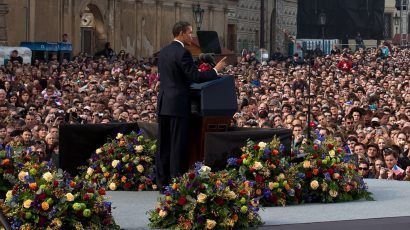Search results for nuclear terrorism
Martin B. Malin, nuclear policy community-builder par excellence
Martin B. Malin, who passed away April 19 from cancer, was both a serious scholar of nuclear policy and one of the field’s great community-builders. His warm, insightful mentorship inspired a generation of nuclear scholars.
Why China should observe the Nuclear Security Summit pledge
Beijing has nothing to fear from IAEA security procedures or real-life, real-world tests of security at its nuclear sites.
Why the US should keep cooperating with Russia on nuclear security
Washington-Moscow relations may be strained over Ukraine, but the countries must still work together
‘Right of boom’: Meet the experts who respond to nuclear disaster
An unofficial gathering held once a year plays a crucial role in government preparedness for nuclear disasters. These are the experts who plan for the aftermath of some of the worst imaginable radiological emergencies.
Fukushima and the Seoul 2012 Nuclear Security Summit
In considering the implications of Fukushima for the 2012 Seoul Nuclear Security Summit, many experts in the United States would probably argue that there are none -- their fundamental point being that it is a security summit, not a safety summit. However, it is undeniable that Japan's nuclear disaster has sounded alarm bells around the world. The words "nuclear reactor," "radiation," and "safety" have new resonance. Fear is inescapable.
Setback for WMD security
When the Group of Eight (G-8) last gathered in Canada in 2002, the summit meeting was an unarguable success for the future of weapons of mass destruction (WMD) security. The leaders launched a multilateral initiative, known as the Global Partnership against the Spread of Weapons and Materials of Mass Destruction, and pledged $20 billion over 10 years to help Russia destroy their WMD stockpiles.
CSI comes to nuclear security
A call for more nations to have nuclear forensics libraries
To prevent nuclear war, borrow from 1973
A dusty US-Soviet agreement—little noticed when signed and largely forgotten since—has real potential amid today’s unpromising arms control environment to reduce the risk of nuclear war.
Jodi Lieberman’s Nuclear Roundup moves to the Bulletin
The Bulletin of Atomic Scientists is pleased to announce that Jodi Lieberman’s “Nuclear Roundup” is now a featured column on the Bulletin’s website. The Roundup is an indispensable daily listing of nuclear-related news and reports, delivered to your inbox. If you are a current subscriber to the Nuclear Roundup, your service will not be interrupted. … Continued
Debunking nuclear security hype on the eve of the Nuclear Security Summit
There is too much sensationalism in coverage of nuclear security, which threatens to undermine real efforts to make us safer.
Bringing Iran into the Nuclear Security Summit
If a nuclear deal is reached, the Nuclear Security Summit should add another seat at the table
This is the year for nuclear material security
A few weeks ago, an anti-nuclear group breached security fencing at the Kleine Brogel Air Base in Belgium. Undetected, the group spent more than an hour on a military base where U.S. nuclear weapons are supposedly stored. Worse yet, they then uploaded to YouTube a video showing exactly how they exploited Kleine Brogel's security weaknesses.
Replace peace activists with terrorists and the results could be devastating.
Rockets fired at Ukrainian nuclear power plant; Ukraine and Russia blame each other
Ukraine claimed that Russia had fired rockets on Saturday at a spent fuel storage area at the Zaporizhzhya Nuclear Power Plant in southern Ukraine, risking what the country’s nuclear power company called a “nuclear disaster.” A Russian official claimed the attack had come from Ukraine.
Obama’s nuclear legacy on the line
He’s made progress on Iran, but the rest of the president's nuclear agenda has stalled.
For nuclear security, good intentions are not enough
At the upcoming Nuclear Security Summit, participants should define measurable long-term goals.
How do you solve a problem like plutonium?
A five-point plan for making the world safer.
Global Fissile Material Report 2007: Summary findings
Almost two decades since the end of the Cold War, the United States and Russia still retain stockpiles of about 10,000 nuclear weapons each and have committed only to reduce to about half that number by the end of 2012, when the Strategic Offensive Reductions Treaty comes into force.
There are now seven other nuclear weapon states, including North Korea, which carried out its first nuclear test on October 9, 2006. Their arsenals range from a few simple warheads to several hundred high-yield thermonuclear weapons.
The scientist and the nuclear smuggler: unexpected connection
A little recognized component of the nuclear smuggling process—the scientist who is asked to verify black-market nuclear material—could be used to thwart it







